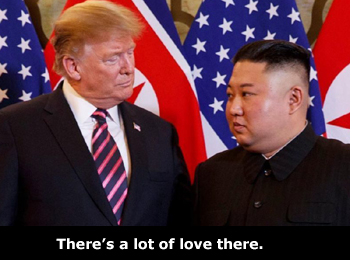As of this writing, the Saudis and Yemen have pulled together a tentative truce for Ramadan. As Ryan Grim reports in Deconstructed, the podcast by The Intercept, it’s essentially the first one in seven years of brutal war that has left almost 400,000 Yemenis dead. It’s quite possible that, by the time you read this, the Saudis will have resumed their merciless campaign of destruction, but I, for one, hope not.
There is truly nothing so invisible as a war promoted by your own government. In Russia, they need to make it a crime to refer to the war in Ukraine as a “war”. Over here, that’s not necessary. There are other ways to manipulate public opinion in a formal republic; as Orwell wrote, educated, thoughtful people understand that there are some things it simply would not do to say. No need for brute force – just a compliant professional/managerial class eager to get ahead.
Hidden in plain sight
As I’ve mentioned in previous posts, the Russian invasion of Ukraine is being covered like practically no other conflict in my lifetime. That is a good thing. I just wish they would cover all wars, including the ones we start, with the same dedication to detail. I think the principle at work here is largely that of proximity to power. Ukrainians are culturally close to white Americans. Their attacker is an official enemy, a rival power. Those two factors, broadly speaking, drive the coverage.
Yemen is the opposite. The victims are not like “us” (i.e. white, christian, western people). They are being attacked by official allies – Saudi Arabia, UAE – with our help. They are friends with an official enemy (Iran). Those factors keep them off of the front pages. There are many horrific stories that can be told about the Yemen war, and we Americans have heard almost none of them. On the other hand, I have heard wrenching stories of suffering from Ukraine on a daily basis, many of them multiple times. This is not an accident – it is a reflection of power.
The limits of compassion
We are encouraged to empathize with our enemies’ victims. In the case of Afghanistan, the official argument for twenty years of war was partly built on concern for the fate of women and girls. That was during the war. Now that the war is over, however, we apparently couldn’t care less. The country is on the brink of starvation. They have been frozen out of the banking system and have no access to their own reserves. Even international aid organizations cannot operate effectively in Afghanistan under the current sanction regimes.
You will notice, also, that Afghanistan is not in the news all that much. That was the case during most of the 20-year American war. It only hit the headlines when Biden pulled out last year, and now it’s gone again. The news splash was mostly an expression of the war party in America (Republicans and Democrats) who were against withdrawing American troops from the country. Indeed, it was hard to find voices in favor of the withdrawal at the time.
Like a compass needle
I’ve said this about NPR in the past, but it’s basically true of all major media: they know where power resides in this country, and that is their true north star. Their compass needle will always point that way, regardless of the consequences.
luv u,
jp


